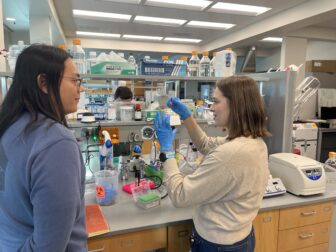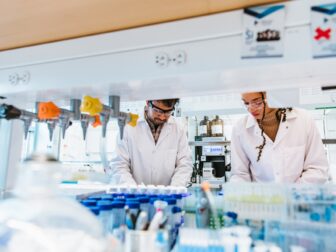Brittany Hartwell, PhD

Activating Frontline Immune Defenses in the Nose with Hitchhiking Vaccines
Summary
To combat infectious threats like HIV, SARS-CoV-2, and influenza, vaccines are needed that trigger immune protection in places like the nose, where pathogens enter the body. While traditional injected vaccines are effective at activating “backup” defenses in the blood, they do not typically activate robust “frontline” defenses in mucosal tissues where transmission takes place. Vaccinating directly at mucosal surfaces — for example, through the nose — can promote mucosal immunity. However, vaccine delivery across mucosal barriers is challenging because they are very good at keeping most vaccine components out. Yet the naturally occurring protein albumin is known to be very good at getting in. Albumin, a major blood protein also found in mucosal fluids, is shuttled across mucosal barrier tissues by binding a receptor on its surface. Exploiting this biology, my lab is developing intranasal vaccines that ‘hitchhike’ on albumin to deliver immune cargo in the nose to activate frontline mucosal immunity against infections like COVID and influenza. We hope this engineering strategy of hitchhiking to bypass mucosal barriers will result in delivery of vaccines that are safer and more effective at protecting against infectious diseases.
Watch a Q&A with Brittany
I’m thrilled to receive a PhRMA Foundation Faculty Starter Grant for our work on intranasal vaccines for infectious diseases. This award recognizes the importance of developing mucosal drug delivery strategies for next-generation vaccines, and supports our efforts to elucidate vaccine kinetic mechanisms underlying immune activation in mucosal tissues.

